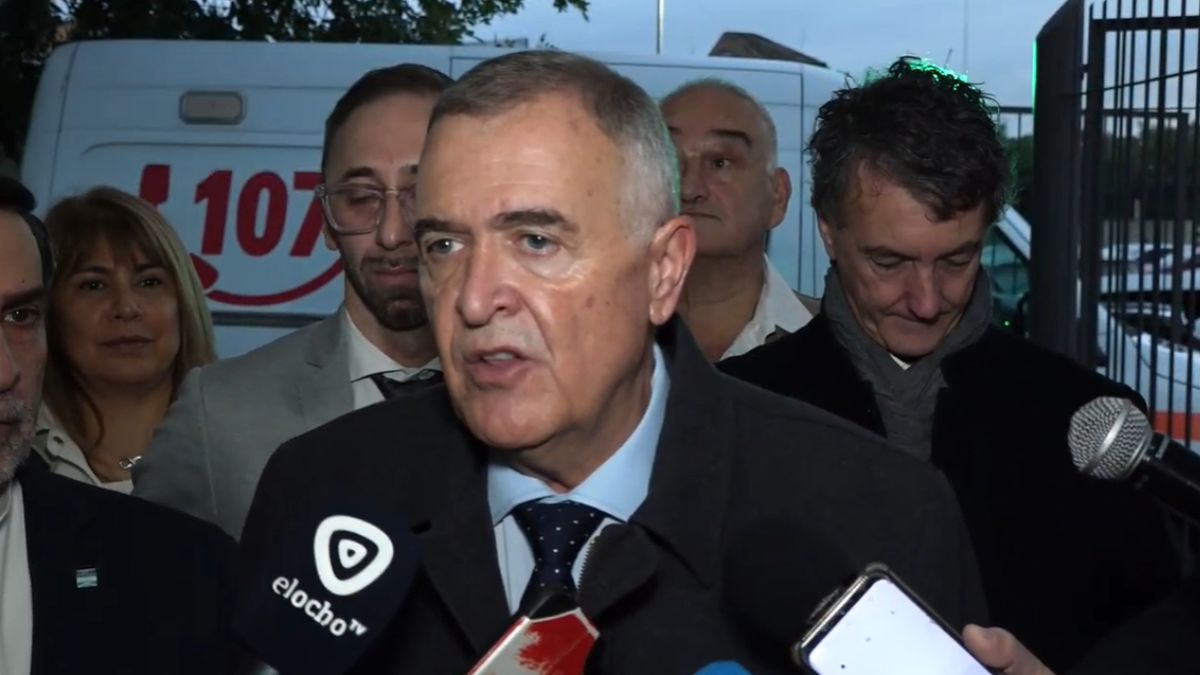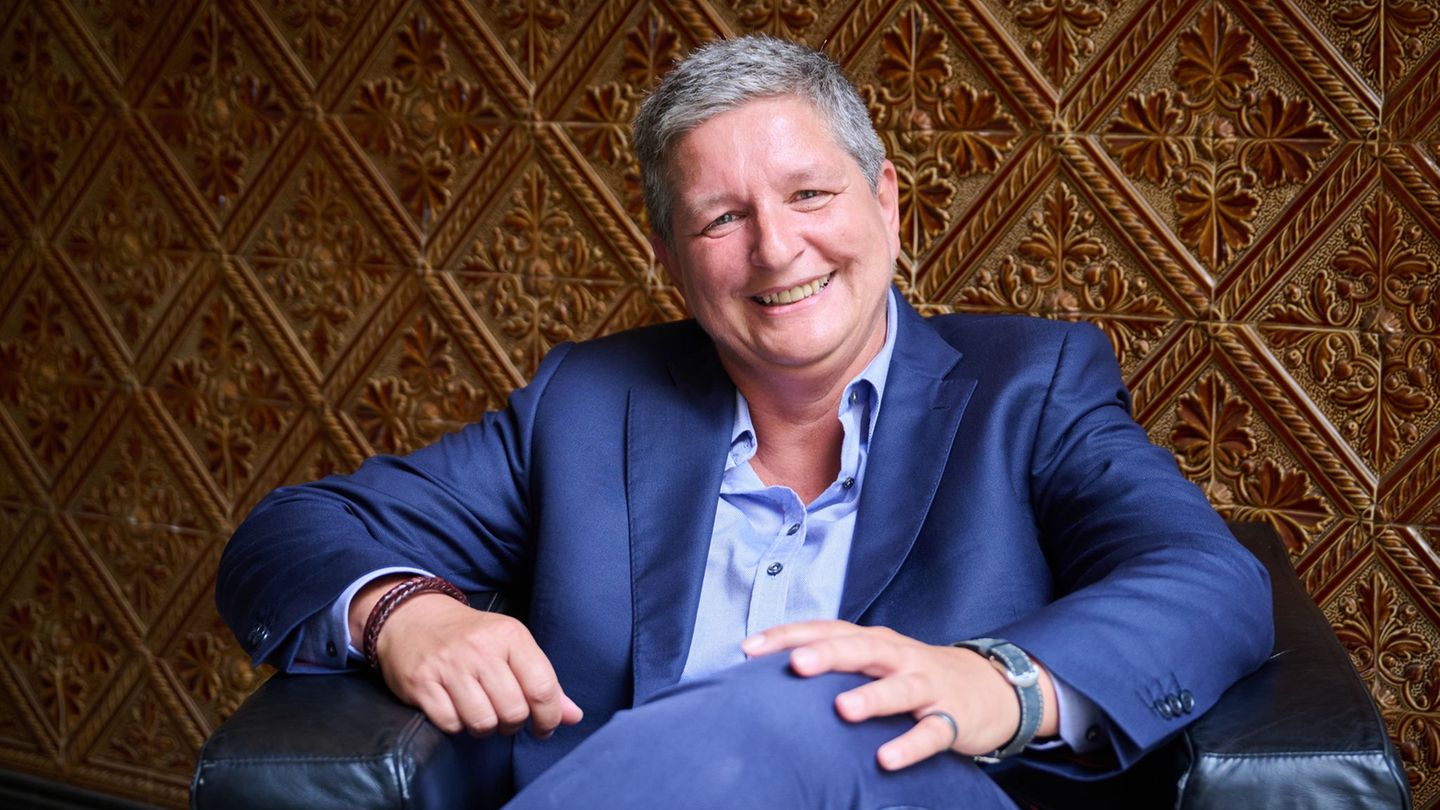He Governor of Tucumán, Osvaldo Jaldoclosely follows the development of the steps towards the treatment of Budget 2025 which was presented by President Javier Milei in Congress and hopes that the works that the Nation signed with the provincial leaders. “They will be incorporated into complementary lists,” said the Tucuman in response to a question from Scopeafter participating in the La Florida sugar mill, part of the Balkan Companyof the inauguration of a sugar cane-based cogeneration plant.
“We are in permanent contact with the Casa Rosada regarding the 2025 Budget because the forms that were submitted did not include the works that we had signed with the Government,” he said. “These are works in which the Nation provided 70% of the financing and the province 30%. And that is why our Minister of Economy, Daniel Abadis working with the Chief of Staff, Guillermo Francos, and Lisandro Catalán, deputy chief of staffwho has a direct relationship with the governors, so that the attached forms that will be discussed in Congress coincide with the minutes that we signed in the Casa Rosada, where the funds that will finance the works are detailed,” he explained.
It is no coincidence that Jaldo has made a personal commitment because it involves the completion of works that have been paralyzed since December of last year and others that have not started, despite having already passed all the administrative stages – including the approval of their valuation – and only their financing remained. The tourniquet that Milei applied to the funds for the provinces reduced or equal to zero the allocations for public works.
The forms that the governor referred to Jaldo These are the agreements that the governors signed with Franco and Catalán in the Casa Rosada, before Approval in Congress of the Bases Law and the signing of the May Pacton July 9, in Tucumán. The agreements improved the dialogue between Balcarce 50 and the provincial leaders in those weeks, who supported the approval of the Ley Bases with the parliamentarians who answer to them in the House of Representatives and the Senate. In the case of Jaldo, he did so through the deputies of the Independence Blockwho left the Union for the Homeland, Agustín Fernández, Gladys del Valle Medina and Elia Fernández de Mansilla.
Since then, except in homeopathic doses and a handful of provincial leaders, the Nation has not fulfilled those commitments assumed. In the case of Tucumán, three days before his displacement as a member of Jaldo’s cabinet, the now Former Minister of Public Works and Services, Santiago Yanottirevealed that the Nation agreed to send $93,000 millions for the restart of public works of different dimensions but “to the province” less than $1 billion arrived “so far.” He said this on August 28. That scenario has changed little, according to consultations by Ámbito.
This situation was also reflected in the last session, on September 11, of the Parliament of the Great Northin Misiones, which includes 10 vice-governors and 130 provincial parliamentarians, occasion in which their President, Carlos Silva Nedervice-governor of Santiago del Estero and president of Parliament, said that “in all provinces there are works paralyzed due to failure by the Nation to send funds.” He thus denounced that the agreements that Governor Gerardo Zamora also signed with Francos are not being fulfilled.
Bagasse converted into electrical energy
balkans.jpeg
Jaldo participated in the inauguration ceremony of a sugar cane-based cogeneration plant at the La Florida sugar mill, which is part of the Los Balcanes Company. Since these last few days, the Los Balcanes Electric Company has been providing energy to the national interconnected system, via TRANSNOAthe equivalent of what 17,000 households consume. In fact, it is burning of bagasse -the residue obtained from sugar cane after the juice is extracted- and with that, high-pressure steam is generated that feeds generators, which produce energy. The technology already exists in Brazil and is gradually being introduced in the country. Grupo Los Balcanes is the fifth sugar mill to incorporate this innovation into its plant, thereby reducing the environmental impact of its activity.
At the opening of the event, the President of the Balkan Sugar Company, Jorge Rocchia Ferrowho pointed out that “rather than talking about what energy cogeneration is, we have to talk about sugar. When we started the transformation plan, Tucumán had 230,000 hectares and today it has 310,000. And I think we have to bet on growth. This year we are going to grind and make more sugar than last year, we are going to make more alcohol than last year.”
The president of the Industrial Union of Tucumán also stressed that his aspiration is to soon have transgenic sugarcane. “It is just around the corner, it is resistant to drought, glyphosate, HB1 and we already have it in the field, we think we can extend our borders until we have in Tucumán no less than double the sugarcane we have now,” he said. And he explained that for that to happen “we have to diversify the mills, make yeast, do cogeneration and we have to make more bioethanol because it is the solution for Argentina regarding the gasoline issue.”
Jaldo highlighted this new stage of the company and asked to “work together and in an organized way to face the challenges of the sugarcane sector and make the most of our raw material.” He also called on all the actors in the production chain to plan and cooperate to ensure the growth and sustainability of the sector. “Never go backwards, always move forward. If the national government does well, all Argentines do well,” he concluded.
Rocchia Ferro was in favor of the Biofuels Bill which doubles the cut for the mixture with gasoline and diesel, an initiative that was presented in August in the House of Representatives. The proposal is promoted by Cordoba, Santa Fe, Entre Rio, Salta, Jujuy and Tucumanand also tenders to supply the local market, a key difference with the current standard.
Source: Ambito
I am an author and journalist who has worked in the entertainment industry for over a decade. I currently work as a news editor at a major news website, and my focus is on covering the latest trends in entertainment. I also write occasional pieces for other outlets, and have authored two books about the entertainment industry.




